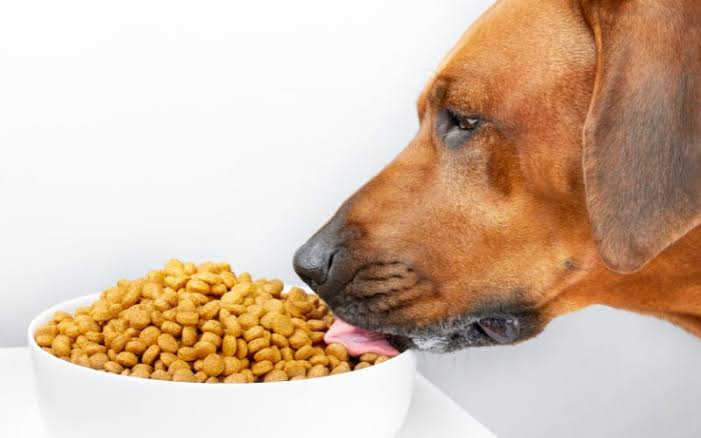
The Role of Diet in Keeping Pet Fur Healthy
This article explores the crucial connection between a pet's diet and the health of their fur. It discusses essential nutrients like protein, fatty acids, vitamins, and minerals, and how they contribute to a shiny, strong, and healthy coat. It also offers guidance on choosing the right pet food and recognizing signs of dietary deficiencies that can affect fur health.
🐶 Pet Star
13 min read · 1, Feb 2025

The Foundation of a Healthy Coat: Essential Nutrients
Now, what makes a pet's coat so magnificent? Well, just like our hair, their fur needs the right building blocks. And those building blocks come from their food. Think of it like this: you can't build a strong house with flimsy materials, can you? The same goes for your pet's fur.
Protein: The Building Block of Fur
First and foremost, we need to talk about protein. Protein is the main component of hair, fur, and skin. It's essential for growth, repair, and maintenance. Without enough protein, your pet's coat can become dull, dry, and brittle.
Look for pet foods that list a high-quality protein source as the first ingredient, such as chicken, fish, or lamb.
Fatty Acids: The Shine Factor
Next up: healthy fats! Fatty acids, especially omega-3 and omega-6, are crucial for a shiny, healthy coat. They help moisturize the skin and prevent dryness and flakiness. They also contribute to the fur's luster and shine. You can find these fatty acids in fish oil, flaxseed oil, and other supplements.
Vitamins and Minerals: The Supporting Cast
And now, let's not forget the supporting cast – vitamins and minerals! These essential nutrients play a vital role in various bodily functions, including fur health. Vitamin A, for example, is important for skin health. B vitamins contribute to fur growth and shine. And minerals like zinc and copper are essential for maintaining a healthy coat. A well-balanced pet food should provide all the necessary vitamins and minerals.
Choosing the Right Pet Food: Decoding the Labels
Now, with so many pet food options out there, it can be overwhelming to choose the right one. The key is to read the labels carefully. Look for pet foods that list meat as the first ingredient. Avoid foods that are packed with fillers, artificial colors, and preservatives. And remember, every pet is different. Some pets might have specific dietary needs or allergies. If you're unsure, consult with your veterinarian. They can help you choose a food that's right for your pet's age, breed, and health condition.
Recognizing Dietary Deficiencies: Signs in the Fur
A dull, dry, or brittle coat can be a sign of a dietary deficiency. If you notice any changes in your pet's fur, it's important to take them to the veterinarian. They can help you determine if the issue is related to their diet or if there's an underlying medical condition.
Beyond Food: Other Factors Affecting Fur Health
While diet is crucial, it's not the only factor that affects fur health. Regular grooming, bathing, and parasite control are also important. And remember, stress can also take a toll on your pet's coat. A happy, healthy pet is more likely to have a beautiful, shiny coat.
The Importance of Hydration: Inside and Out
Don't forget about hydration! Just like us, pets need plenty of fresh water to stay hydrated. Dehydration can lead to dry, itchy skin and a dull coat. Make sure your pet always has access to clean, fresh water.
A Holistic Approach to Fur Health
So, my dear grandson, remember that a healthy coat starts from within. By providing your pet with a balanced diet rich in essential nutrients, you're giving them the building blocks they need for a beautiful, shiny coat. Combine that with regular grooming, proper hygiene, and plenty of love and attention, and you'll have a happy, healthy companion with a coat that shines like gold!
Q&A Section:
Q1: My dog's coat is dull and dry. What could be the cause?
Ans: A dull and dry coat can be caused by several factors, including dietary deficiencies, dehydration, allergies, or underlying medical conditions. It's best to consult with your veterinarian to determine the cause and get appropriate treatment.
Q2: What are some good sources of omega-3 fatty acids for pets?
Ans: Fish oil, flaxseed oil, and certain types of fish, like salmon, are excellent sources of omega-3 fatty acids. You can also find supplements specifically designed for pets.
Q3: My cat is shedding excessively. Could her diet be a factor?
Ans: Yes, diet can play a role in shedding. A diet lacking in essential fatty acids can lead to increased shedding. However, excessive shedding can also be caused by other factors, such as stress, allergies, or hormonal changes. Consult with your veterinarian to rule out any underlying issues.
Q4: Are there any human foods I can give my pet to improve their fur health?
Ans: While some human foods can be given to pets in moderation, it's important to do your research first. Some human foods can be toxic to pets. It's always best to stick to a balanced pet food that's specifically formulated for their nutritional needs. Consult your vet before introducing new foods.
Similar Articles
Find more relatable content in similar Articles
Explore Other Categories
© 2024 Copyrights by rPets. All Rights Reserved.